Turn any article into a podcast. Upgrade now to start listening.
Premium Members can share articles with friends & family to bypass the paywall.
Happy Thursday! Longevity influencers and wellness gurus everywhere preach the gospel of good sleep. A man in Sapporo, Japan, has taken this to heart: Caught doing more than 110 mph in an under-40-mph zone, he told police he “wanted to get home quickly to sleep.” Nothing says self-care like risking vehicular homicide for better REM cycles.
Quick Hits: Today’s Top Stories
- A gunman shot three detainees at the Dallas Immigration and Customs Enforcement (ICE) field office on Wednesday morning, killing one person, while the others were hospitalized and remain in critical condition. The shooter opened fire on the detainees from a nearby rooftop before killing himself by a self-inflicted gunshot wound shortly afterward. This was the third shooting this year targeting ICE or Border Patrol facilities in Texas—and the fourth violent incident overall, including an August 25 bomb threat at the same Dallas ICE site. At a news conference, authorities confirmed that no law enforcement officers were injured, that “the FBI is investigating the incident as an act of targeted violence,” and that “rounds recovered near the shooter contained anti-ICE messages.” Shortly afterward, FBI Director Kash Patel posted an image on X showing five recovered bullet casings, one of which had the words ‘ANTI-ICE’ written in blue ink. At the press conference, Republican Sen. Ted Cruz of Texas condemned the attack, saying, “This must stop.”
- Moldovan Prime Minister Dorin Recean on Wednesday accused Russia of scheming “to take power” in his country by spending hundreds of millions of dollars to influence Moldova’s upcoming parliamentary elections on Sunday. “The Russian Federation wants to campaign not in its own country,” Recean said, “but in our country.” Bloomberg reported Monday that the Kremlin developed a plan this past spring to remove Moldovan President Maia Sandu and her governing Party of Action and Solidarity from power, according to documents reviewed by the news agency. The plan aimed to prevent Moldova from progressing toward European Union membership. Also on Monday, Moldovan authorities conducted more than 250 raids and detained 74 suspects, who police said were involved in a plan to foment “disorder and destabilization” through mass riots, a disinformation campaign, and voter recruitment, according to the head of Moldova’s police and documents reviewed by the Western press.
- Danish Prime Minister Mette Frederiksen and Greenlandic Prime Minister Jens-Frederik Nielsen on Wednesday issued a public apology for the government’s role in medical malpractice against Greenland’s Inuit women and female children in the late 1960s to the early 1990s, in which they were unknowingly implanted with birth control by health authorities. The Danish government initiated the process as a population-control measure, but even after Denmark granted more autonomy over internal affairs, Greenland’s government continued the practice for years. “I know I cannot take away your pain or give back what you lost,” Frederiksen said. “But I hope it can stand as recognition that what you went through was wrong, that it was a betrayal, and that the responsibility no longer lies on you but on us.”
- Syrian President Ahmed al-Sharaa—the former al-Qaeda fighter who succeeded former dictator Bashar al-Assad after his regime fell in December—spoke in person before the U.N. General Assembly on Wednesday, becoming the first Syrian leader to do so since 1967. “Our priority is to define Syria’s new state,” al-Sharaa said. “Syria needs to be defined in a new way.” He added, “Syria has turned 180 degrees from the state it was in.” Also on Wednesday, the Syrian state-run news agency photographed President Donald Trump meeting with al-Sharaa in New York City during the U.N. summit. Al-Sharaa met with Secretary of State Marco Rubio on Monday.
- Andrea Baccarelli—Harvard University’s public health dean, whose research the Trump administration cited in its recommendation to limit acetaminophen, also known by the brand name Tylenol, intake during pregnancy—received at least $150,000 to appear in court as an expert witness in a case against Tylenol’s one-time drug manufacturer, Johnson & Johnson. However, Baccarelli said in a court deposition that he was paid for the “more than 200 hours” of time spent working on the case by the plaintiffs, a not-unreasonable market rate. Baccarelli co-authored a review last month that examined potential links between the use of acetaminophen during pregnancy and autism, and concluded that pregnant women should “limit acetaminophen consumption to protect their offspring’s neurodevelopment.” In the case, decided in 2023, a federal district judge dismissed Baccarelli’s testimony for lack of scientific evidence, ruling that he “cherry-picked and misrepresented study results.” To learn more about the White House’s autism announcement, read yesterday’s TMD.
- In a U.N. meeting this week with the leaders of eight Muslim-majority nations, two Arab diplomats told the Times of Israel, Trump presented an Israel-Hamas ceasefire proposal that would secure the release of all Israeli hostages and place Gaza under non-Hamas rule. As Politico first reported, Trump also assured the leaders that Israel would not annex the West Bank. Trump has said the next step in the process is to speak with Israeli Prime Minister Benjamin Netanyahu.
- Typhoon Ragasa injured more than 100 people in Hong Kong on Wednesday, one day after the super storm killed 14 people in Taiwan and at least 10 more in the Philippines. A further 22 others are still missing in Taiwan, after the typhoon caused a mountain lake to burst through its containing barrier. Ragasa is the strongest recorded storm so far this year, with winds on Wednesday reaching 150 miles per hour.
- Malawi’s Electoral Commission declared Wednesday that former President Peter Mutharika won the September 16 election with 56.8 percent of the votes, defeating incumbent Lazarus Chakwera. Chakwera conceded defeat Wednesday in a nationally televised address, congratulating Mutharika on his “historic victory.” The 85-year-old Mutharika previously served as president from 2014 to 2020, before losing to Chakwera in a court-ordered rerun of the 2019 election, which was nullified due to irregularities. Voters delivered what analysts called a “protest vote” against Chakwera’s administration amid soaring inflation, which reached 33 percent, and widespread fuel shortages in the impoverished southern African nation.
- Gene therapy company uniQure announced on Wednesday that its experimental treatment, AMT-130, slowed the progression of Huntington’s disease by 75 percent after three years in a pivotal clinical trial. The one-time gene therapy represents the first successful treatment to actually slow the fatal neurodegenerative condition rather than just managing symptoms. Patients receiving the high-dose treatment experienced significantly less decline in motor and cognitive functions compared to matched controls, with the therapy delivered directly to brain regions through neurosurgery. UniQure plans to submit AMT-130 for FDA approval in early 2026, potentially making it the first disease-modifying therapy available for the inherited condition affecting approximately 100,000 Americans.
- California agreed to pay Maurice Hastings $25 million in what lawyers call the state’s largest wrongful conviction settlement, according to court documents made public Monday. Hastings, 72, spent 38 years in prison for a 1983 murder and sexual assault before DNA testing in 2021 proved his innocence and linked the crime to another suspect who had died in prison. The August settlement resolved a federal lawsuit alleging that two Inglewood police officers and a Los Angeles district attorney investigator framed Hastings by ignoring evidence and manipulating witnesses. Hastings was declared factually innocent by a judge in March 2023, following the vacation of his conviction in 2022, when he was 69 years old.
- According to a document sent on September 12 by the State Department to congressional members and later obtained by the Washington Post, the Trump administration intends to direct $1.8 billion in foreign aid assistance—made available through the White House’s near-total teardown of the U.S. Agency for International Development (USAID)—to international programs that include initiatives to oppose “Marxist, anti-American regimes” in Latin America. The document further outlines investments in Greenland and Ukraine, and states that the funds must be allocated “in ways that make America safer, stronger or more prosperous.”
- Nature reported on Wednesday that the U.S. military continues to fund mRNA vaccine research, even as Health and Human Services Secretary Robert F. Kennedy Jr. terminated nearly half a billion dollars in government contracts for the technology last month. HHS ordered an immediate shutdown of ongoing studies in an August 5 notice, but the Defense Department subsequently instructed affected companies to restart trials for vaccines targeting deadly pathogens, such as Crimean-Congo hemorrhagic fever and avian influenza. The fractured approach has reportedly created turbulent conditions for biotech firms like HDT Bio, which learned of funding cuts from one agency only to receive continued support from another within days.
The City That Was
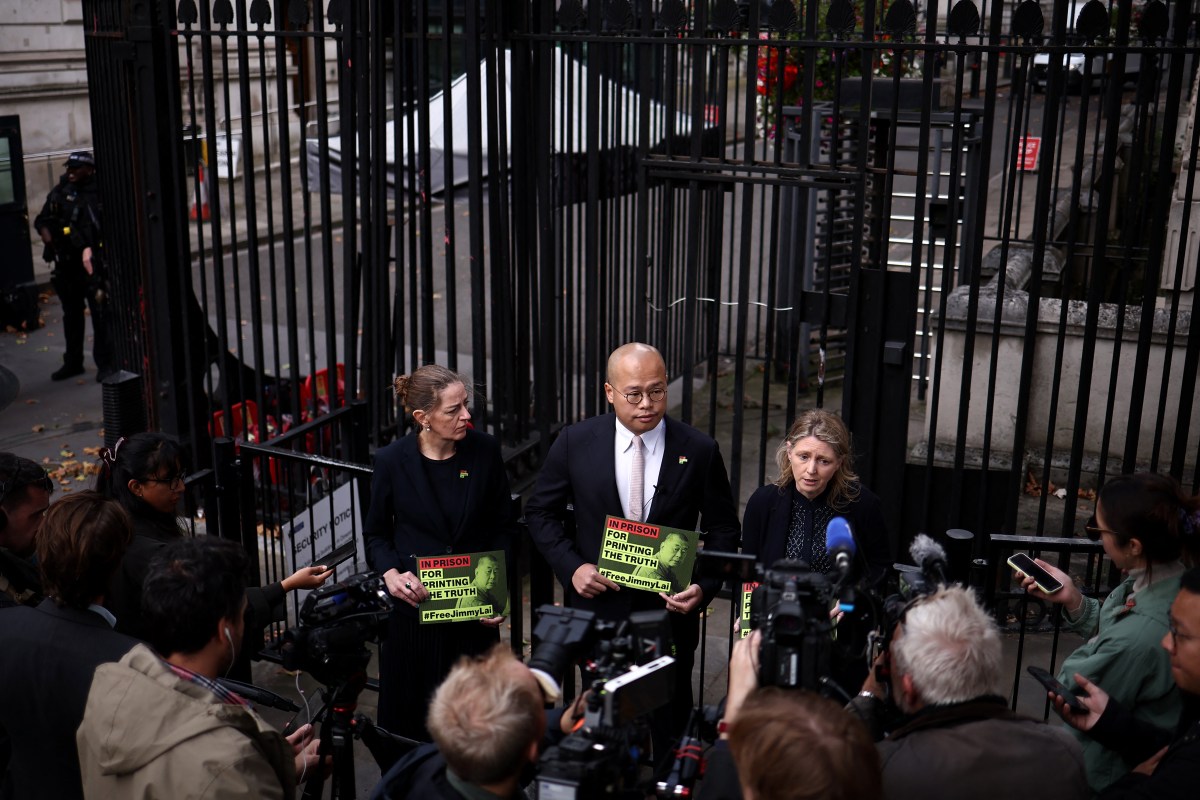
Time is running out for Jimmy Lai. The 77-year-old Hong Kong business and media tycoon, jailed since 2020, has been in solitary confinement for more than four and a half years, roughly 1,700 days, in the city’s Stanley Prison. Lai pleaded not guilty to accusations of crimes against the Chinese state, linked to his involvement in Hong Kong’s pro-democracy movement and for founding Apple Daily, a now-shuttered newspaper that criticized China’s government. The trial, which began after Lai had already been in detention for several years, lasted 156 days and concluded late last month. His family now awaits his almost-inevitable guilty conviction.
Lai’s son, Sebastien, is currently campaigning for Western governments to take action to rescue Lai. He’s fully aware that his father, suffering from complications from diabetes and reported heart palpitations, is at real risk of dying in prison. “Given that he spent the last five years in solitary confinement, in a little prison cell, and it goes up to 30, 40, degrees Celsius [between 86 and 104 degrees Fahrenheit],” Lai told TMD. “In those conditions, it’s hard to do that well… it’s quite a scary thing.”
However, Jimmy Lai’s predicament is not an outlier in Hong Kong, one of the two semi-autonomous cities in the People’s Republic of China (the other “special administrative region” is Macau, located across the Pearl River Delta from Hong Kong). Hong Kong now holds more than 1,900 political prisoners like Lai, according to the Hong Kong Democracy Council, an NGO based in Washington, D.C. Formerly known as Communist-ruled China’s bastion of liberal freedom, Hong Kong is in danger of falling fully under the authoritarian rule of the Chinese Communist Party.
As a non-paying reader, you are receiving a truncated version of The Morning Dispatch. You can read our full item in the members-only version of TMD.

When China was handed control over Hong Kong in 1997 by its last British governor, Chris Patten, in an elaborate ceremony attended by then-Prince Charles, China promised to respect the city’s freedoms and laws for at least 50 years from 1997, as agreed upon in 1984 as part of the Sino-British Joint Declaration. Hong Kong’s “capitalist system and way of life” would be preserved, according to the declaration.
For several decades, Hong Kong flourished as the commercial gateway to China, with a relatively large degree of self-rule and limited democratic representation. It seemed like the policy of “one country, two systems,” developed by President Deng Xiaoping in the 1980s, was providing a workable modus vivendi for China and the former colonial enclaves of Hong Kong and Macau (originally a Portuguese colony). Multiple attempts by China to exert greater control over the city’s political process, in 2003 and 2014, were rebuffed by large street protests.
In 2019, however, that all changed. The government proposed a new law that would allow accused criminals in Hong Kong to be extradited to the mainland to stand trial—a clear encroachment on the city’s independent legal system. Hundreds of thousands of protesters took to the streets—in Hong Kong’s largest demonstrations ever—and stormed the airport and blocked roads after police deployed rubber bullets, beatings, and tear gas. Carrie Lam, Hong Kong’s chief executive, withdrew the bill on October 23, 2019.
But protests escalated even more just a month later, when Lam activated emergency powers to attempt to enforce an anti-masking law (protesters had been using masks to evade police detection). Police cracked down, besieging protester-occupied Chinese University and Hong Kong Polytechnic in dramatic confrontations, as protesters used firebombs and bows to fend off riot police for nearly two weeks. Pro-democracy politicians won massive victories in elections to Hong Kong’s legislative council.
But Chinese authorities refused to back down, eventually taking advantage of pandemic-induced lockdowns to aggressively prosecute any group of people gathered in public. Then, in June 2020, the Communist Party passed a national security law criminalizing most dissent and defining terrorism, secession, and foreign collusion in very broad terms.
“If this move takes place,” pro-democracy lawmaker Dennis Kwok told Reuters at the time, “this is the end of Hong Kong.” It was certainly the end of Kwok’s career in the city: Just months later, he moved to Canada and now runs a law practice in the U.S.
Hong Kong is now much more like the rest of China. “In the last five years, [the city] has gone from being still an open and somewhat democratic society, up until 2019-2020, to being one of Asia’s most repressive police states,” Benedict Rogers, a human rights activist and senior director of the British NGO Fortify Rights, told TMD. Dissent is now rare in the city, with the government passing another national security law in 2024 to further enhance its powers.
Hong Kong remains bustling and prosperous, with its independent currency and laws on finance and business largely unaffected by China’s crackdown. But in the pattern of daily life, things have changed. “I know anecdotally that [Hong Kongers] would be extremely cautious, even in restaurants or in taxis,” to discuss politics, Rogers said.
Rana Mitter, the S.T. Lee chair in U.S.-Asia Relations at Harvard’s Kennedy School, told TMD that the government is also increasingly promoting Mandarin Chinese in schools and public life, rather than Hong Kong’s native Cantonese. Hong Kong’s language policies are just one example of a Chinese government that’s increasingly less tolerant of internal diversity, said Mitter: “The overall direction of travel is to homogenize the idea of Chinese culture.”
It’s unclear whether the West can do much to halt China’s move in that direction. By email, Steve Tsang, the director of the SOAS China Institute at the University of London, told TMD that the “best the democracies can do is to help [give] those from Hong Kong who still work to advance democracy and human rights there a safe sanctuary when they need it.” As he explained, “Beijing will not yield on Hong Kong, unless we are talking about Trump going for an all-out tariff war in return for concessions… but President Trump is not exactly interested in HK’s democracy or human rights.”
But freeing Lai might be more manageable. In August, President Donald Trump told Fox News’ Brian Kilmeade that he would “do everything I can to save” Lai ahead of his administration’s trade negotiations with the Chinese government, saying that he would raise the case with Chinese officials. The Senate also considers this a priority. Sen. Rick Scott, a Republican from Florida, authored a letter signed by 50 other senators last week, calling on British Prime Minister Keir Starmer, then about to meet with Trump, to work for Lai’s release (Lai is a British citizen). “Like our president, we share Mr. Lai’s values and admire his struggle for freedom, democracy, and the rule of law,” they wrote.
The U.N. Working Group on Arbitrary Detention has also officially determined that Lai is a political prisoner, prompting the British ambassador to the U.N., Kumar Iyer, to call for British consular access to Lai and an independent medical assessment.
Under questioning in Parliament last October, Starmer said that freeing Lai is a government priority. But the prime minister has yet to meet with the Lai family, Sebastien Lai told TMD. “If it’s truly a priority, he should meet with the family,” he said. “It tells my father’s captors, the Chinese government, that this case really matters.” Downing Street did not return TMD’s request for comment.
Pressing Xi on trade concessions, or using diplomatic tools like the ongoing controversy over the construction of a new Chinese embassy in London, might be options that Britain and the U.S. can barter for leniency toward Lai, said Rogers. “I think some element of conditionality around his release is something that both our governments and other Western governments could do,” he told TMD.
Condemning China would hardly be virgin territory for Trump. “In the first Trump term, the administration took a very robust stand on human rights in China,” Rogers noted, referencing condemnations of both the crackdown in Hong Kong and the Chinese government’s abuse of the Uyghur ethnic minority in the nation’s northwest. But sweeping cuts to U.S. democracy support, especially to media programs like Voice of America and Radio Free Asia, along with a British desire to reset relations with China, have put Chinese human-rights abuses on the back burner. “On both fronts, the pushback is not what it should be,” said Rogers.
Few observers are under the illusion that Lai will receive anything but a guilty verdict. His supporters’ hopes rest on the length and conditions of his sentence.
But Sebastien Lai says that his father knows that he’s sacrificing for a cause bigger than himself. Last year, Jimmy Lai told a court that his Roman Catholic faith and his vocation as a newsman gave him the same mission: to tell the truth. “For truth prevails in God’s kingdom, and that’s good enough for me,” he said.
He “knows full well what he was sacrificing, knows full well that it was the right thing to do,” Sebastien told TMD. “It wasn’t the comfortable thing, it wasn’t the thing that ensures longevity, either, but it was the right thing, and you protected people when you could have easily ran.”
Today’s Must-Read
Public policy analysts and lawmakers are often asked to determine whether the societal benefits of legalizing recreational marijuana nationwide would outweigh the harms. The short answer is: Who knows and who cares? The question is not only impossible to answer empirically with any sort of precision or credibility, but also beside the point. Moreover, as framed, it invites readers to embrace a number of rhetorical fallacies that further undermine the prospects of shedding any useful light on this discussion. To appreciate why the question presented misses the mark, we can ask the same question with respect to various activities that do not carry the social stigma of drugs, or the decades of regulation that tend to imbue drug laws with a false patina of legitimacy.
Because marijuana was once prohibited everywhere, for many decades the costs of prohibition were visible, while the costs of legalization were hypothetical. This was a comfortable position for advocates of legalization, as their claims about legalization’s (lack of) downsides could not be empirically validated. Fortunately, we now have several decades of data on the effects of legalization. The results are undeniable: Legalization greatly enhances the harms of marijuana, while doing surprisingly little to diminish the harms of prohibition. Expanding it further will only increase the costs, while yielding little additional benefit. Arguments to the contrary are built more on dogma than evidence—an unfortunate reality of the legalization debate that is long overdue for correction.
Toeing the Company Line
The Challenge of Principled Consistency
Having your cake and eating it too.
The Second Reagan Revolution
Can conservatives win ‘a massive political battle’ in 2028?
Trade Is Among People—And Retaliation Can Be, Too
Foreigners are protesting U.S. policies with their pocketbooks, and it could cost us billions.
This Isn’t the First Time the FCC Has Weaponized Its Regulatory Power
How progressives devised the public interest and news distortion standards to chill free speech.
Dancing on the Grave of the Two-State Solution
Hussein Agha and Robert Malley offer an honest—and troubling—look at Palestinian nationalism.
Sin Tax or Revenue Raiser? A New Tax Provision Hits Gamblers.
Congress lowers the tax deduction for betting losses, sparking a conversation about widespread gambling.
Dorm Room Originalism
Plus: Did Originalism ‘kill’ the Constitution?
Barbarians at the Gate | Interview: Allen C. Guelzo
‘Hitler is the triumphant of the anti-Enlightenment.’

Worth Your Time
- In the aftermath of Charlie Kirk’s assassination, much digital discourse has focused on which side of the political spectrum is more violent. While most of this debate has been predictably unproductive, Daniel Byman and Riley McCabe offer genuine insight in their new Atlantic piece, “Left-Wing Terrorism Is on the Rise,” based on a study they conducted for the Center for Strategic and International Studies. Drawing from a dataset of 750 attacks and plots in the United States from January 1994 to July 2025, they write, “according to our analysis, violence on the left accounted for four plots and attacks from 1994 to 2000, compared with 144 on the right. That difference narrowed in the following decade, but the right continued to account for significantly more attacks and killings than did the left.” However, 2016 was a “turning point,” with left-wing violent extremism responsible “for 37 incidents from 2016 to 2024;” and “By July 4 of this year, far-left extremists had already been responsible for five terrorist attacks and plots, putting 2025 on pace to be the left’s most violent year in more than three decades.”
Presented Without Comment
Associated Press: Justice Department To Try To Charge Ex-FBI Director James Comey, AP Sources Say
The Justice Department is preparing to ask a grand jury as soon as Thursday to indict former FBI Director James Comey on allegations that he lied to Congress as prosecutors approach a legal deadline for bringing charges, according to two people familiar with the matter…. Prosecutors have been evaluating whether Comey lied to lawmakers during his Sept. 30, 2020, testimony related to the investigation into ties between Russia and Trump’s 2016 presidential campaign. The five-year statute of limitations for bringing a case would be next Tuesday, but the Justice Department is expected to seek an indictment before a grand jury before then…
Also Presented Without Comment
The Hill: [South Carolina Sen. Lindsey] Graham Says He Would Support Third Trump Term in 2028
Also Also Presented Without Comment
The Guardian: New Statue on National Mall Celebrates ‘Long-Lasting Bond’ Between Trump and Epstein
Let Us Know
Have any thoughts or questions about today’s newsletter? Drop us a note in the comments!
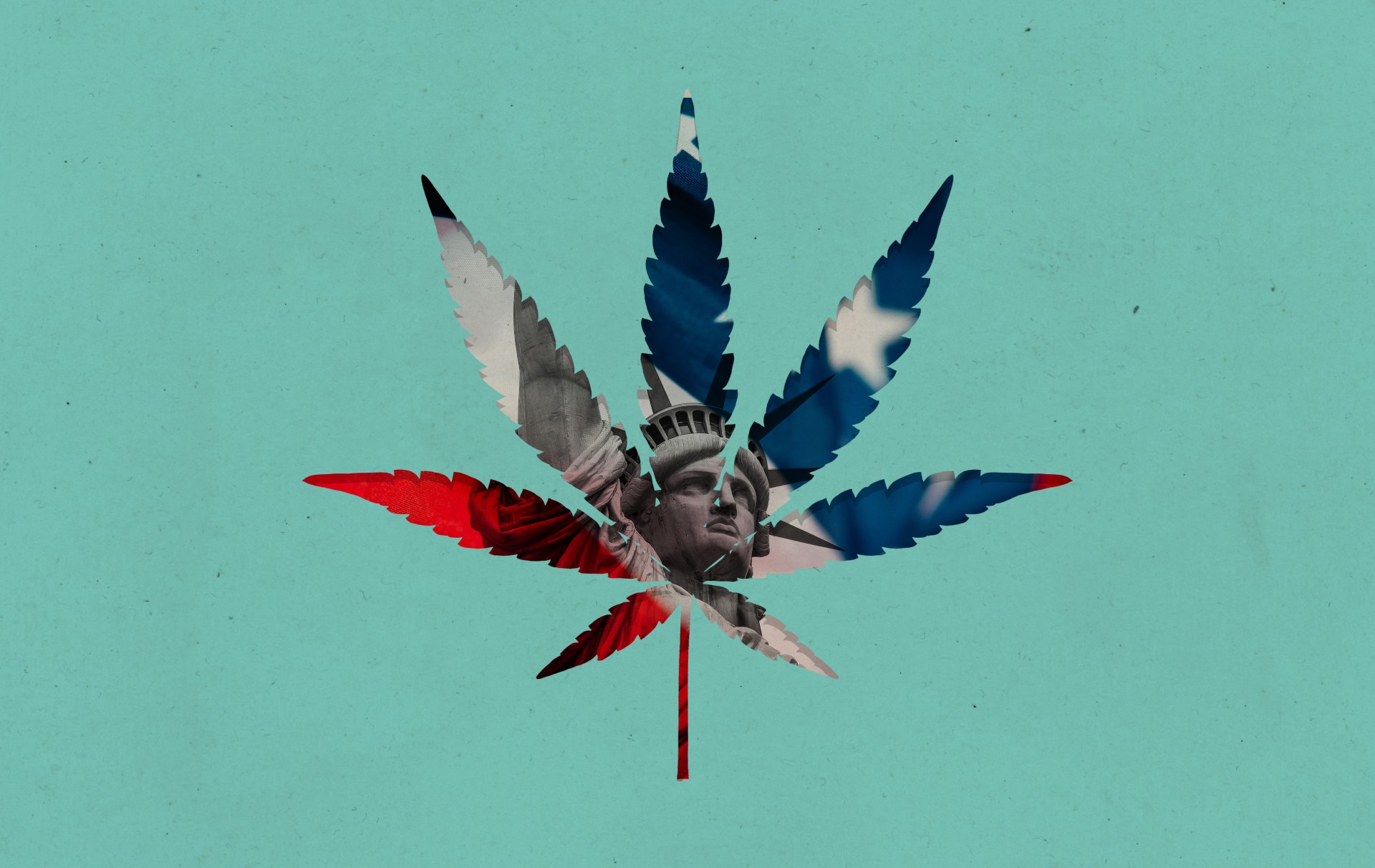
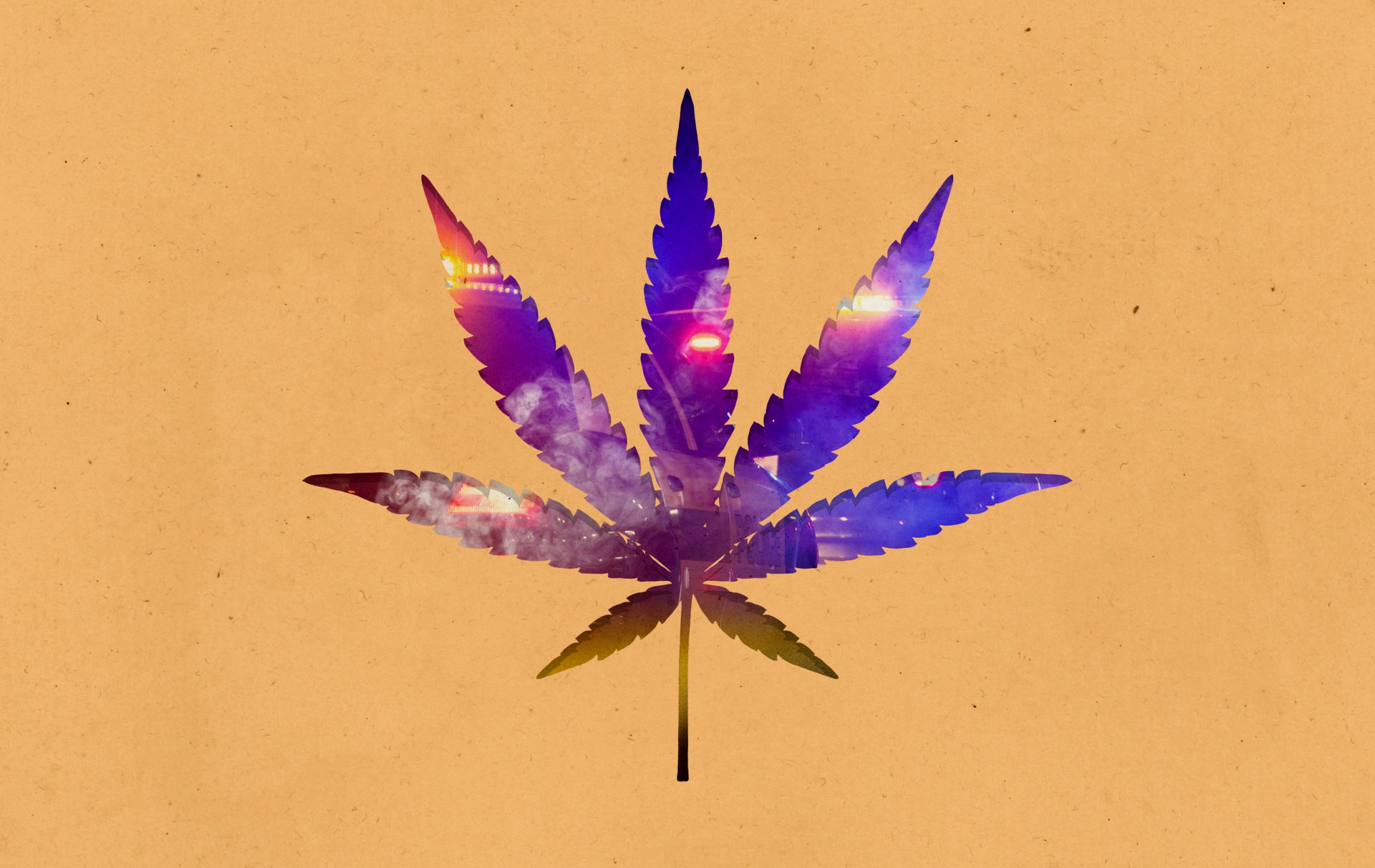
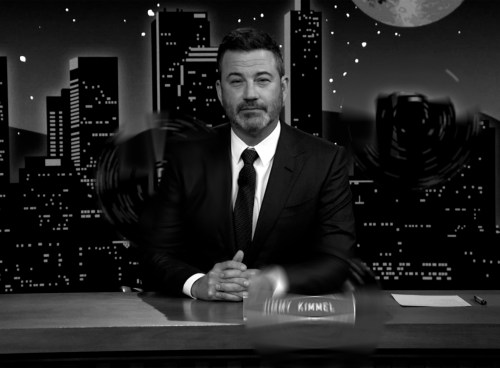

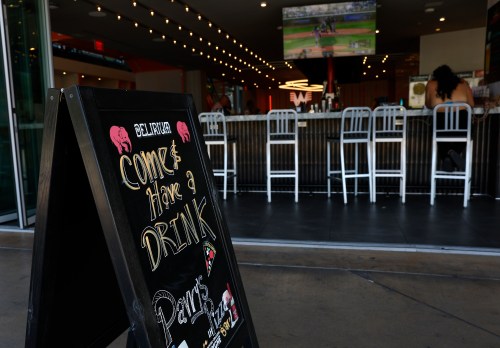
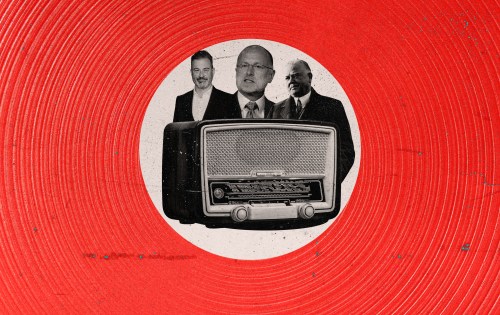
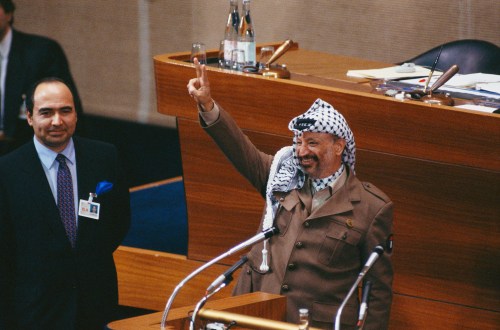

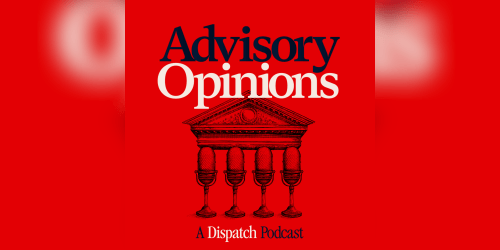
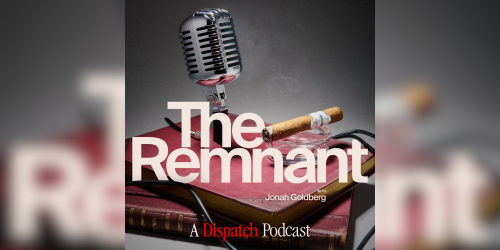



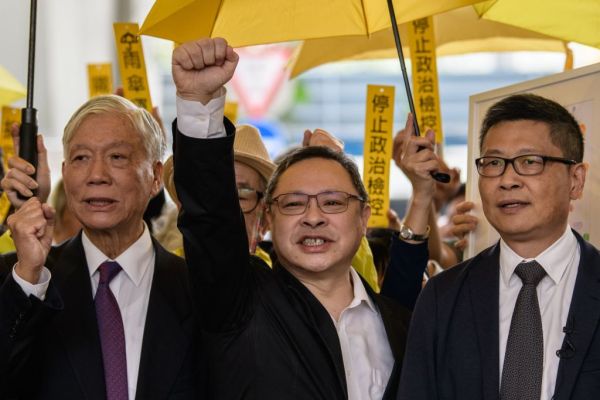
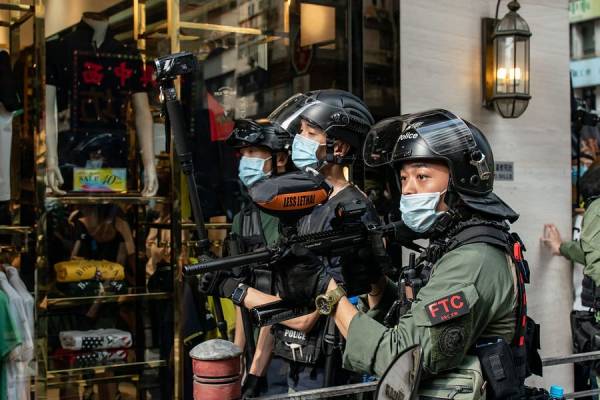
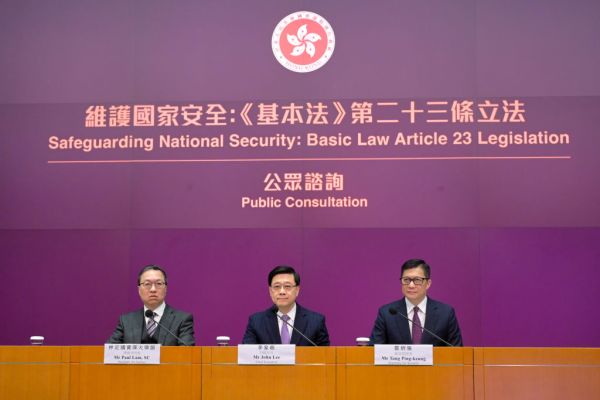
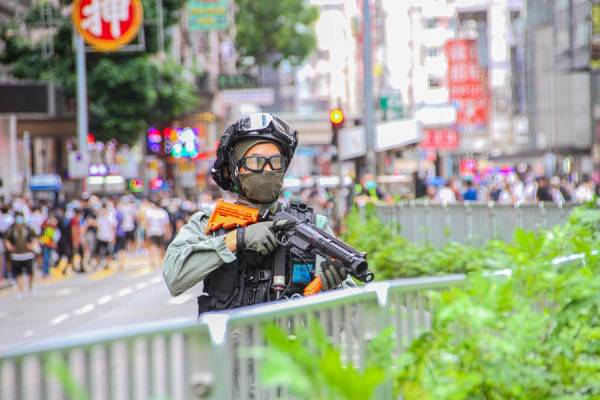
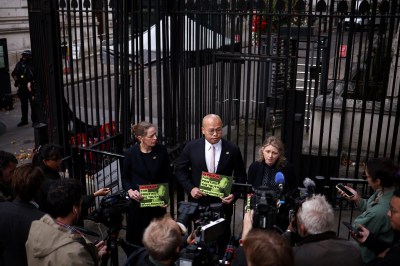
Please note that we at The Dispatch hold ourselves, our work, and our commenters to a higher standard than other places on the internet. We welcome comments that foster genuine debate or discussion—including comments critical of us or our work—but responses that include ad hominem attacks on fellow Dispatch members or are intended to stoke fear and anger may be moderated.
With your membership, you only have the ability to comment on The Morning Dispatch articles. Consider upgrading to join the conversation everywhere.